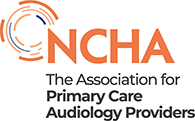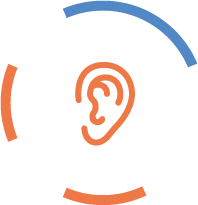24 October 2024
SEN children to receive eye and ear checks
NHS England has announced that children with special needs who attend residential schools will have free annual ear and eye tests.
Eyesight and hearing problems are more common in children with a learning disability, and these children can find it harder to report problems with their hearing or sight. NHS England said it had introduced the checks to help early identification, so that the children can get the care and support they need as soon as possible.
About 18,000 children and young people in England will benefit from the sensory checks, which are being rolled out after a successful pilot study in the past two years.
Anne Worrall-Davies is NHS England's children and young people's learning disability and autism and SEND clinical lead. She said: "We are delighted that we will soon be able to offer these vitally important checks to children and young people with special educational needs and disabilities in order to reduce health inequalities, identify unmet needs and provide any necessary treatment and follow-up support."
Stephen Kinnock, the Minister of State for Care, said: "I am pleased we will be able to support vital sensory checks for all pupils in special educational settings, in a comfortable and known environment for them."
NHS England said that all staff carrying out the sensory checks will be "appropriately qualified" to use the clinical equipment. They must also take the Oliver McGowan Mandatory Training in learning disability and autism to allow them to make reasonable adjustments to the checks they administer.
Staff will carry out hearing checks when the child starts school and at subsequent transition points, such as when a child moves from primary to secondary school. If the checks identify any ear health or hearing issues or concerns, staff will refer the child to their GP or local audiology team.
The development of the Sensory Checks Programme was part of a commitment in the 2019 NHS Long Term Plan to ensure children and young people with learning disabilities or autism can access eye, dental and hearing care.
There has been some criticism of the scheme's focus on children in residential care because it excludes children with special needs in mainstream schools. NHS England said this was because children who live away from home are more vulnerable. Children and young people with a learning disability, autism or both often struggle to access ear checks, which can harm their education and general wellbeing.
Many children in mainstream schools have their hearing screened shortly after they start primary school, but provision is not universal. The government introduced hearing screening in the 1950s, long before the implementation of the newborn hearing screening programme in the early 2000s.

Press enquiries
Media enquiries should be directed to [email protected] or call 020 7298 5110.
We are happy to put you in touch with our expert policy advisers who can comment on a variety of issues.
You can also follow us on Twitter and LinkedIn.

 Your hearing and aural health
Your hearing and aural health  Commissioners and Policymakers
Commissioners and Policymakers  Member support and guidance
Member support and guidance News and views
News and views
 Hearing map
Hearing map
